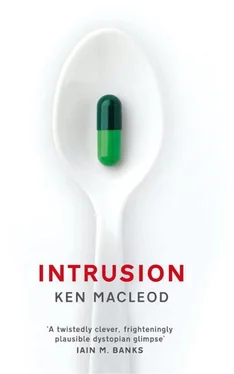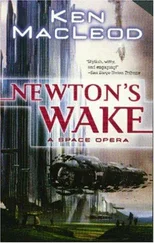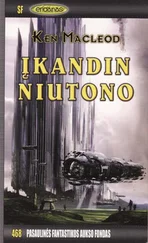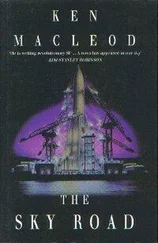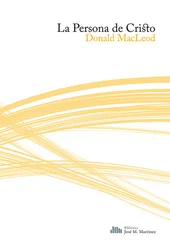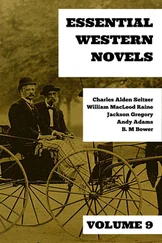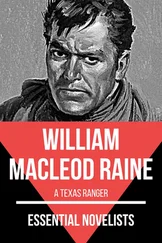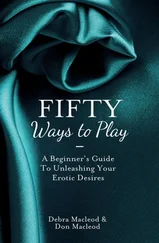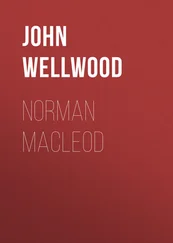‘I couldn’t bear it,’ she said. ‘For Nick.’
‘The publicity?’ Hugh asked.
‘The being made to feel different.’
‘They make him feel different already,’ said Hugh, with some bitterness.
‘That’s just prejudice,’ said Hope. ‘I’d hate for it to be science.’
Something was bugging her about the science, but she couldn’t put her finger on what it was.
The following morning Hope finished the nursery walk and the breakfast dishes and the beds before 9.30, then sat down at the table and fired up her glasses, stared at the endless scroll of language-mangled queries and thought: fuck this.
Let Searle handle the questions for today. She couldn’t concentrate. She hadn’t slept well. Hugh’s late-evening belated confession had shaken her even more than the one last week, the one that had started with her confrontation with him over the gun. That Hugh, in their apparently open, weepy, letting-it-all-come-out-at-last conversation, hadn’t actually told her what was evidently one of his biggest bugbears about his hallucinations, and one of the main reasons why he’d kept it bottled up so long – that really, really pissed her off. Especially given that this aspect of his story was directly connected with the matter of social services and child protection, not to mention making Lewis seem an even less attractive place in which to get away from all this for a while.
She loved him, but, aagh.
Hope jumped up from the table and stalked over to the sink, where she’d earlier noticed that the regularly recurring pinkish algal slime on the dish drainer was back. She dried the almost-dry plates and mugs racked there and put them away, then pulled on an apron and rubber gloves and filled the sink with hot water and started scrubbing the empty drier. When that was clean, she noticed that the sides of the sink were grubby, and scrubbed them.
That bit of displacement activity out of the way, she ambled around the flat, tidying up. Nick put away his toys every evening, or at least stacked them against the living-room wall, but it was amazing how many he could scatter around in the hour between getting up and going to nursery. She dusted the bookshelves and took books down and opened them and turned over pages of heavy, glossy exhibition catalogues of artists, photographers and designers, and thin, dense-printed textbooks of economics and business administration and management studies, each little more than a taster for the DVD or CD in a plastic envelope attached to the inside back cover, and therefore almost completely useless. Somewhere in the flat there had to be a DVD player, but she couldn’t think where. As if searching for a scientific answer to that question, she moved on to Hugh’s battered old engineering manuals and science references, some of them handed down from his father like a family Bible and likewise unchanging and full of small type, with constants and formulae defined for all time in bold black font barbed with serifs, a King James Version of truth. Then her browse took her to cookery books – again, the most used handed down, this one from Hope’s grandmother – and as she flipped through recipes whose results were appetisingly and artfully photographed in an advertising style her arts-trained eye could recognise at a glance as early 1980s, she lit upon a faded glossy pic of a beef casserole. She could almost smell the steam, and a sudden craving told her exactly what they’d be having for dinner this evening.
She went out into bright sunshine to Tesco. The New Trees had reached forty feet and their broad, overlapping leaves cast an almost unbroken shade. On East West Road Hope blinked in the glare and hastily put her glasses on, waving a hand to flip them to polarising mode. One or two people in the street gesticulated or waggled their fingers as they walked, but without glasses. Contacts, the very latest thing. The thought niggled, somehow.
In the store she bought a kilo of beef and some root vegetables – it wasn’t the weather for a casserole or anything heavy, but she was the one who was pregnant and if her body or the baby’s said it needed iron or whatever she wasn’t going to argue, and anyway Hugh would eat anything after a day’s work – and as she bagged them under the checkout scan and gazed abstractedly at the floating virtual display of the magazine downloads on offer, the niggle returned to her mind. She paused to focus on the niggle, and it vanished beneath the surface of her mind like a minnow into a deep pool as a shadow falls. Hope frowned, and deliberately turned her mind away. She knew it would come back if she didn’t concentrate; it was like letting a search run in the background, sooner or later up it would come.
Back at the flat, she tied on an old blue-and-white-striped butcher’s apron, turned the slow cooker on to high, and got to work, peeling potatoes, slicing garlic and onion, chopping carrots and a turnip, dicing meat, searing and simmering amid increasingly savoury smells. Every so often she wiped her hands on the apron, leaving smears of blood or flour or stock-cube crumbs. Just as she’d turned the cooker down to simmer and put the Pyrex lid on the pot and picked up the big knife to place it in the sink, the missing thought rose to the top of her mind’s stack and pinged for attention.
Rhodopsin , it reminded her, and tachyons .
That was it, that was what had been bugging her ever since Hugh had mentioned the word last night. Rhodopsin was the visual protein for whose gene he and Nick had a mutation, and she knew she’d come across the word before, in another context. Three months ago she’d read in The Economist that scientists at CERN had detected possible tachyon effects in a suspension of rhodopsin derivatives.
Hope put down the knife, wiped her hands again, and scanned the shelf of Hugh’s old reference books. She pulled down an encyclopedic dictionary of physics, searched, and found.
Tachyons. Hypothetical particles that moved faster than light, and, therefore, backward in time. From the future into the past.
She went over to the table and picked up her glasses carefully by the edges, nudging the earpieces open with her wrists. She ran a semantic search on the topic, and found little beyond the initial Nature paper, a small flurry of letters in New Scientist , and the same Economist article. No follow-up, no further research reported. It looked like one of those discoveries that flared for a moment then faded. But still…
It got her thinking. If something derived from rhodopsin detected particles moving backward in time, and Hugh had a mutant version of rhodopsin… was it possible that the visions he saw were caused by tachyons? Not directly, surely – no tachyon flux could behave like light, and she doubted that the particles could be focused on the retina – but stimulating the brain to form an image nonetheless. Hope knew from her art training that the visual field was mostly an internal construction anyway, a vast canvas corrected and updated piecemeal by the pencil torch of the optic nerve’s input, whose bit-rate was far too low for it to produce the whole panorama at once. So some visual reconstruction cued by odd fleeting particles didn’t strike her as impossible.
In which case, the barbarians Hugh saw weren’t from the past. They were from the future.
Which – if you followed through the logic of the wild speculation – raised the awkward question of how they saw him (and indeed, in one instance, her), as Hugh had insisted they did. Because in that case, they would be seeing into the past. Was there such a thing as an anti-tachyon? Not part of the Standard Model, that was for sure! So then, she’d have to fall back on the hypothesis that these interactions were hallucinations, construction of Hugh’s brain, in which case… why even go down the physics route; why not admit the whole thing was a hallucination? And yet, and yet – Hugh had claimed his boyhood pals had seen something real, under the hill above the house… Did these lads have the same mutant gene, or was there a quite different phenomenon involved?
Читать дальше
